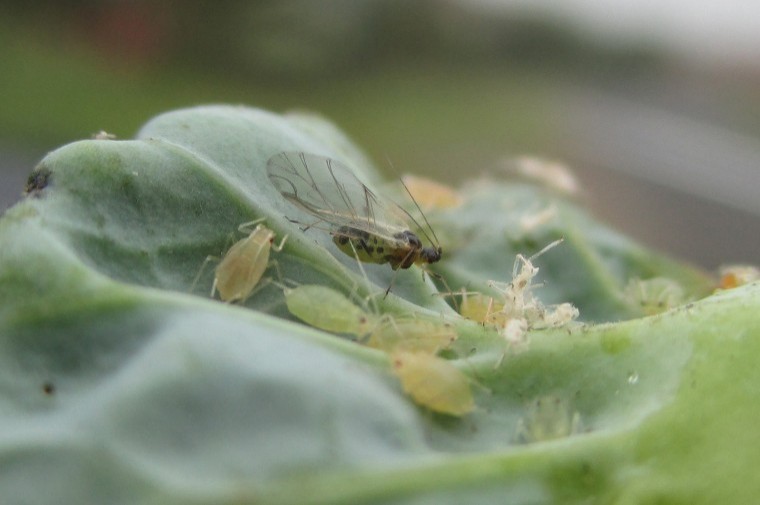Brassica growers need to be planning their aphid control strategy to prevent virus transmission far earlier in the season, to take advantage of new technologies and mitigate the impact of challenges for foliar application results, according to Syngenta technical manager, Simon Jackson.
A key speaker at the Brassica & Leafy Salads Conference this month (25 January), Simon highlighted that another milder than average winter had increased the risk of early infection of Turnip yellows virus (TuYV) for young planted brassica and salad crops in 2017.
“Historically, when aphids emerge earlier in the season the numbers continue to remain higher, as the population has longer to build,” he warned. Simon pointed out that aphid forecasts would not typically be available until later in the spring, by which time it could be too late to utilise the latest Cruiser 70WS treatment at planting, to protect crops through early growth and their highest risk period for virus transmission.
Crop monitoring has shown that TuYV is extremely common in oilseed rape – with up to 85% of crops infected – and creates an active inoculum for spread to all vegetable brassicas. Early infection into planted out crops can result in the most serious yield losses and quality downgrade, as well as the cause of internal disorders, such as Cigar burn and Tipburn in stored crops.
“The use of Cruiser 70WS with precision Phyto-Drip technology at sowing assures early control of aphids, typically for the first eight weeks,” reported Simon.
“Crucially, it gives complete control of feeding Peach Potato Aphid (Myzus persicae) – which is the primary vector of TuYV in brassicas and has shown widespread resistance to foliar pyrethroid treatments over recent years.”
New trials, undertaken by virus specialist, Dr Mark Stevens, of BBRO, has shown Cruiser 70WS maintained 88% control of Myzus in Brussels sprouts with a known population of aphids over a three week period after planting out. In comparison, a soil drench insecticide over-sprayed at planting out, primarily to target caterpillars, achieved just 32% control of aphids over the same time span.
Commenting on the research results, Mark reported: “Cruiser has shown to give an extremely important defence against early aphid invasion, and therefore control of virus infection”
Simon Jackson advocated that the Phyto-Drip application onto the seed block at the time of planting ensured that every plant received precisely the right amount of treatment and protection. “Over the past few seasons we’ve experienced wet and windy spring weather conditions that have made opportunities for spray application extremely unpredictable,” he added.
“Furthermore, accurate targeting of sprays on small plant leaves, along with obligations for LERAP requirements, can make spray application a real challenge in the field, at a time when farm sprayers are under immense time pressure for other applications.
“With Crusier 70WS and Phyto-Drip application growers can be confident the whole crop is protected. It can proactively reduce the number of foliar insecticides used in brassicas and, for short crop brassicas and lettuce, for example, has the potential to eliminate spray treatments altogether,” he advised.
“Growers should be talking to their plant raisers about treatment options at the same time as variety selection and plant supply phasing, to assure timely application.”




